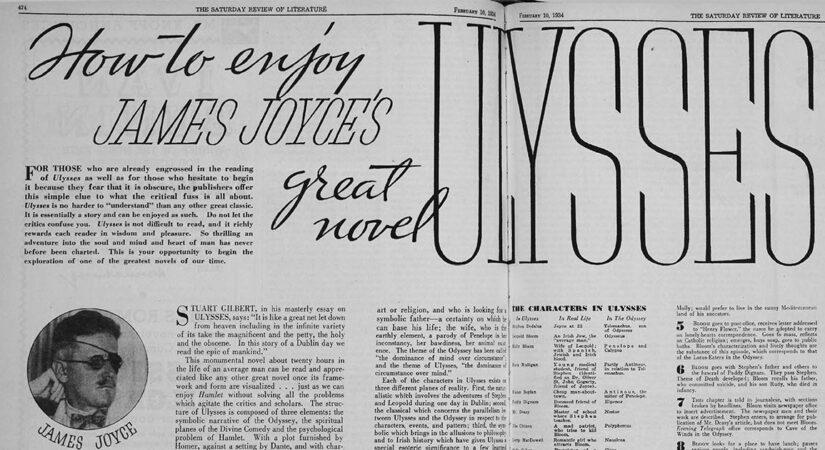Registration
- This is a FREE virtual program held on Zoom. Please check your spam folder for the Zoom link.
- Registration opens for Delancey Society members on March 2, for members on March 9, and for the general public on March 16.
- If you have questions, please call (215) 732-1600 or email [email protected].
Why Read Ulysses 100 Years On?
“An illiterate, underbred book it seems to me: the book of a self-taught working man, & we all know how distressing they are, how egotistic, insistent, raw, striking, & ultimately nauseating.”–Virginia Woolf (16 August 1922)
In our era of information saturation, political, social, and environmental upheaval, why read Ulysses? In this roundtable, students, scholars, and popular readers reflect on the relevance of Ulysses in 2022, one hundred years after its publication. Each participant aims to connect one episode or character to a specific pressing concern today. Censorship, immigration, self-government, Anti-Semitism, sexual, artistic, and religious freedoms–if these were the concerns of 1922, what are the topics that Ulysses urgently speaks to today?
About the panelists
Megan Quigley is the author of Modernist Fiction and Vagueness: Philosophy, Form, and Language (Cambridge University Press, 2015) as well as articles on Henry James, Virginia Woolf, James Joyce, and #MeToo and Modernism. She is co-editing the forthcoming volume Eliot Now (Bloomsbury 2022) in time for the centenary of The Waste Land. She is an Associate Professor of English at Villanova University.
Paul Saint-Amour is the author, most recently, of Tense Future: Modernism, Total War, Encyclopedic Form (Oxford University Press, 2015) and the co-editor, with Jessica Berman, of the Modernist Latitudes series at Columbia University Press. He currently chairs the Department of English at the University of Pennsylvania.
Sean Latham‘s teaching and research focus on modern literature and culture with a particular focus on major figures like James Joyce and Bob Dylan. He is the author or editor of nine books that explore topics like snobbery, genre fiction, libel law, and modernism. Latham also serves as Editor of the James Joyce Quarterly and Director of the TU Institute for Bob Dylan Studies. Currently, he is at work on a book that explores Dylan creative life.

